Bass Players To Know: John McVie
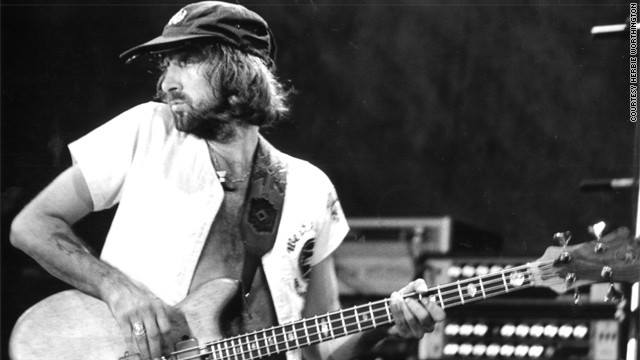
Some records are undeniably awesome. They’ve stood the test of time thanks to stellar songwriting, clever musicianship, and excellent sound quality. They remind you of exactly how fantastic a particular band or artist is. If you haven’t listened to a record like that in a while, I highly recommend spending some quality time with Rumours by Fleetwood Mac. This record brings about nostalgia while continuing to fit into the contemporary landscape of pop and rock—in fact, it very much defines the genre we now know as “adult contemporary.” In addition to the emotionally charged lyricism of the album, I can’t help but focus on the bass playing of John McVie. With a background in blues and a knack for clever parts, he managed to create melodic hooks than serve a contrapuntal function as much as they inspire you to sing along. His musical sensibilities, creative bass lines, and longstanding tenure with Fleetwood Mac make McVie our latest bass player to know.
So Who Is John McVie?
McVie grew up in Ealing, West London during an active and exciting time for rock and blues music. He began playing trumpet at a young age and made the switch to bass as a teenager. Inspired by popular blues and jazz in the late 1950s, he began playing club dates with local bands and later held down a job as a tax inspector. In 1963, he joined John Mayall and the Bluesbreakers. During his tenure in the band, he played alongside Eric Clapton and future band members Mick Fleetwood and Peter Green. McVie left Mayall’s band in 1967 and joined the newly formed British blues band “Fleetwood Mac.” After recording their first record, McVie met blues pianist Christine Perfect of the band Chicken Shack; the two married six months later and Christine officially joined the band.
Throughout the 1970’s, Fleetwood Mac released multiple records and underwent a few personnel changes before taking on a new identity with the addition of songwriting duo Lindsey Buckingham and Stevie Nicks. They quickly enjoyed greater success with the self-titled Fleetwood Mac (1975) and Rumours (1977). In the meantime, McVie and Perfects’ marriage disintegrated and his battle with alcoholism put a strain on both his private and professional life. Fleetwood Mac continued to tour and record through the 1980s and 1990s, despite various personnel changes and hiatuses. In the meantime, McVie also recorded with Warren Zevon, put out his solo project “John McVie’s Gotta Band” (1992), and has been inducted to the Rock and Roll Hall of Fame.
Let’s Talk Style
I like to think that behind every great pop/rock group of the 1970’s is a great blues bass player from the 1960’s. McVie is a creative and mature player who understands the need for musical foundation, patience, and simplicity. From his early years with John Mayall to his longstanding role in Fleetwood Mac, he has always excelled at being a “part” player, whether that happens to be a specific pattern to hold down a blues progression or a well-crafted melodic bass line that highlights a moment of a pop song.
McVie excels at functionality, especially when that involves committing to a deep and authoritative single note, a consistent pedal, or a specifically crafted bass line. He has the unique ability to create simple, yet catchy hooks that not only capture the listener’s attention but also remain fresh despite repetition. Most of the 1970’s hits feature a “McVie hook,” from the dark and mysterious groove during the outro of “The Chain” to the energetic yet distinctive bass line during the chorus of “Say You Love Me.”
Where Can I Hear Him?
“Rhiannon” (Fleetwood Mac: Fleetwood Mac)
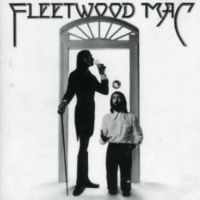 McVie executes a bass line with the power of a moving train; it propels the song with a feeling of constant and unyielding motion that leads the band to a destination brought on by intrigue and mystery. While it sounds like a musical tongue twister, it makes absolute sense from a harmonic standpoint, clearly outlining the minor tonality of the verses and then brightening up the song by featuring the major tonality in the chorus.
McVie executes a bass line with the power of a moving train; it propels the song with a feeling of constant and unyielding motion that leads the band to a destination brought on by intrigue and mystery. While it sounds like a musical tongue twister, it makes absolute sense from a harmonic standpoint, clearly outlining the minor tonality of the verses and then brightening up the song by featuring the major tonality in the chorus.
Listen: iTunes | Amazon MP3
“Have You Heard” (John Mayall & the Bluesbreakers: Blues Breakers With Eric Clapton)
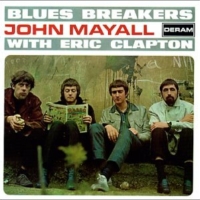 There’s nothing like hearing a damn fine slow blues, especially when it features Eric Clapton and a stellar rhythm section. McVie provides the necessary foundation for the song with long, heavy notes that clearly outline the harmony and a comfortable, patient, and meticulous sense of groove. While some players approach a slow blues with a staccato feel to mimic the double hit of the kick drum, others (such as McVie), take a legato approach to fill out the sound. He joins forces with the organ to pad the song with low frequencies and uses traditional blues voice leading to guide the band from chord to chord.
There’s nothing like hearing a damn fine slow blues, especially when it features Eric Clapton and a stellar rhythm section. McVie provides the necessary foundation for the song with long, heavy notes that clearly outline the harmony and a comfortable, patient, and meticulous sense of groove. While some players approach a slow blues with a staccato feel to mimic the double hit of the kick drum, others (such as McVie), take a legato approach to fill out the sound. He joins forces with the organ to pad the song with low frequencies and uses traditional blues voice leading to guide the band from chord to chord.
Listen: iTunes | Amazon MP3
“Go Your Own Way” (Fleetwood Mac: Rumours)
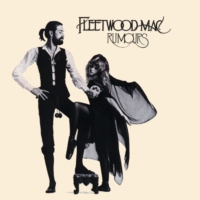 One of my personal favorites, McVie’s bass line in the chorus of this song is true musical perfection. Rather than pedaling the root note, which he does quite well during the verses, he crafts a clever and melodic contrapuntal line. He uses unique phrasing that emphasizes the up-beats, follows diatonic harmony, and sneakily fits under the vocal or during breaks in the melody. While the vocal line features long and sweeping notes with lush harmonies, McVie balances out the song with this superbly creative bass line.
One of my personal favorites, McVie’s bass line in the chorus of this song is true musical perfection. Rather than pedaling the root note, which he does quite well during the verses, he crafts a clever and melodic contrapuntal line. He uses unique phrasing that emphasizes the up-beats, follows diatonic harmony, and sneakily fits under the vocal or during breaks in the melody. While the vocal line features long and sweeping notes with lush harmonies, McVie balances out the song with this superbly creative bass line.
Listen: iTunes | Amazon MP3
How about you? What’s your favorite tune or album with John McVie? Please share with us in the comments.
Ryan Madora is a professional bass player, author, and educator living in Nashville, TN. In addition to touring and session work, she teaches private lessons and masterclasses to students of all levels. Visit her website to learn more!

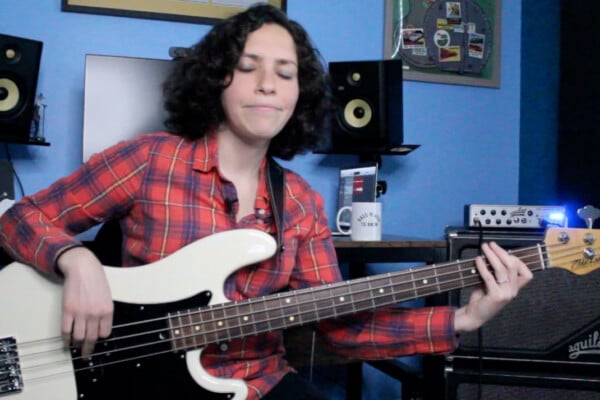
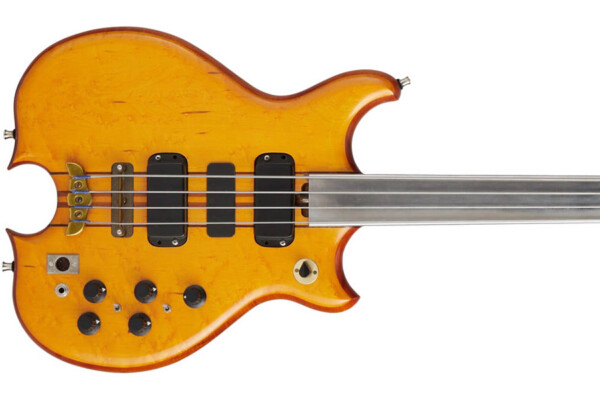
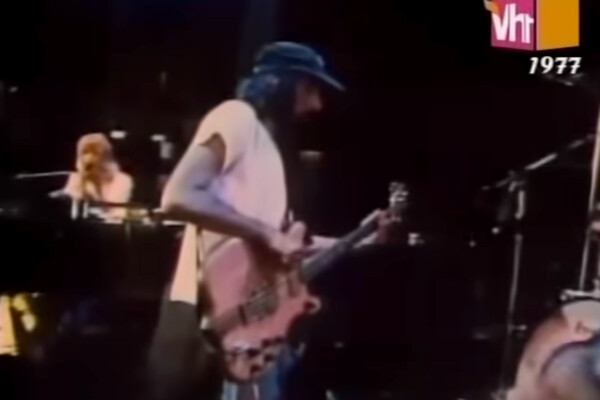
McVie is awesome. Massively underrated bass player, because he does what’s needed for the song and does it superbly well. He can do all the licks and clever stuff, he just doesn’t very often, because it’s all about the song, not the ego forhim.
Much as the Outro of “The Chain” gets lots of well-deserved attention, I love playing the chorus part. It meshes with the vocals to perfection. Also the chorus on “Seven Wonders”, actually just about everything on Rumours. Also one sublime part on “Need Your Love so Bad”.
His playing on ‘angel’ from tusk is perfection.
McVie is a beast, especially playing live. Unique, aggressive style with a lot of heart. One of my favorite bassists.
His early work in the blues scene was SCARY tight. his work with pocket blues playing makes tommy shannon look like a weekend warrior. Mcvie is possibly the most underrated bass player of all.
Not one mention of Peter Green in your article…. awful!
You make loving fun on Rumours is an amazing bassline with an awesome solidity killer passing notes which are synced in perfectly. Tone constant with no weaknesses. Anybody wanting to know how to play bass with the ultimate solid foundation get this one nailed…if you can